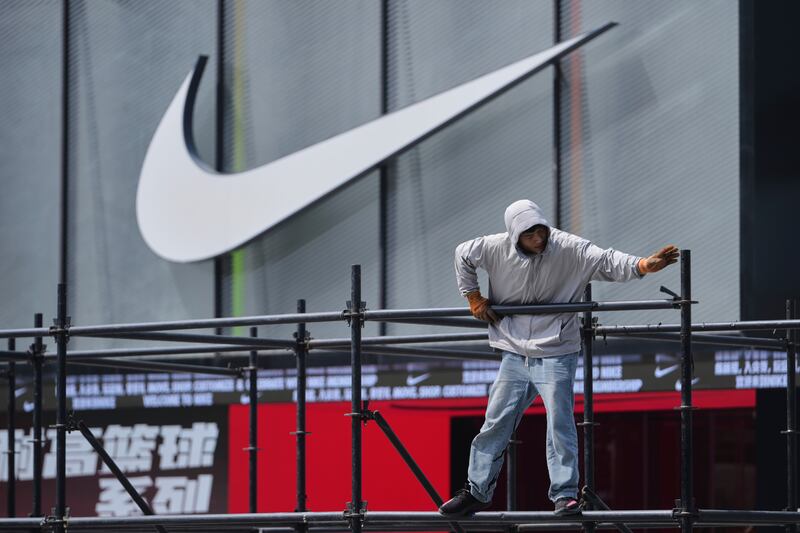- President Trump and Chinese President Xi Jinping had a 90-minute call on trade tensions.
- Trump says they discussed the recent trade agreement and scheduled a new round of talks.
- The call came a day after Trump doubled tariffs on steel and aluminum imports.
A week of re-escalating U.S.-China trade tensions — rising in spite of a temporary agreement reached last month — appears to be cooling down again following a Thursday morning phone call between President Donald Trump and Chinese President Xi Jinping.
Trump said he and Xi engaged in a 90-minute conversation that was focused almost entirely trade issues and included an agreement to hold further trade talks. Trump said they didn’t talk about the Russia-Ukraine war or Iran.
“I just concluded a very good phone call with President Xi, of China, discussing some of the intricacies of our recently made, and agreed to, Trade Deal,” Trump said on Truth Social. “The call lasted approximately one and a half hours, and resulted in a very positive conclusion for both Countries. There should no longer be any questions respecting the complexity of Rare Earth products. Our respective teams will be meeting shortly at a location to be determined.”
Trump said his team for the next round of talks will include Treasury Secretary Scott Bessent, Secretary of Commerce Howard Lutnick and U.S. Trade Representative, Ambassador Jamieson Greer.
Finger-pointing
Earlier this week, China hit back on Trump’s claims the Asian country was in breach of a new trade agreement, struck last month following talks held in Geneva, Switzerland, countering that the U.S. itself was undermining the deal with new sanctions.
A statement from China’s Ministry of Commerce released Monday said Trump administration actions “seriously undermine the existing consensus reached at the Geneva economic and trade talks, and seriously damage China’s legitimate rights and interests.”
Chinese officials also pointed to recent signaling from the U.S. about potential new regulations for advanced microchips and the revocation of U.S. visas for Chinese students, per CBS News, as evidence that the U.S. was acting in bad faith following the trade deal.
In a Truth Social post last Friday, Trump said that the deal had led to greater economic stability for China and “everybody was happy” but alluded to China violating terms of the agreement.
“The bad news is that China, perhaps not surprisingly to some, HAS TOTALLY VIOLATED ITS AGREEMENT WITH US. So much for being Mr. NICE GUY!” Trump wrote.
While Trump’s social media post last Friday morning offered no details about the nature of China’s alleged breach, later reporting indicated the president’s issue was focused on China’s export rules on rare earth minerals.
China controls 90% of the world’s rare earth elements production capacity and, according to the U.S. Department of Energy, the minerals play a critical role in U.S. national security, energy independence and economic growth. Many advanced technologies have components made from rare earth materials such as magnets, batteries, phosphors and catalysts.
Trump ups tariffs on metals
On Wednesday, Trump followed through on a promise made last week to double the current 25% tariff rate on steel and aluminum imports, a move he says will help bolster a beleaguered U.S. manufacturing base.
Trump made the increase official in a proclamation that raised the trade levies on most steel and aluminum imports to 50% as of 12:01 a.m. EDT Wednesday. The president signaled the move in a speech delivered last Friday in Pennsylvania to an audience mostly of steelworkers.
Economists say the import fees are likely to fuel higher prices for construction, automobiles, appliances and other products though it may take months for the impacts to be felt.
White House spokesman Kush Desai said the tariff increase is just one part of a bigger Trump plan aimed at bolstering the domestic economy.
“Domestic steel and aluminum production is imperative for our defense-industrial base,” Desai said in a statement to CNN. “The Trump administration is committed to reshoring manufacturing that’s critical for our national and economic security while unleashing a full suite of supply-side reforms — including rapid deregulation, tax cuts, and unleashing American energy — to continue delivering economic relief for the American people.”
UK steel and aluminum exports to the U.S. were exempted from the new levies thanks to a trade deal between the two countries announced on May 8. But Trump said the 50% fee could be extended to the UK after July 9 if the White House “determines that the United Kingdom has not complied with relevant aspects” of the agreement, per CNBC.


